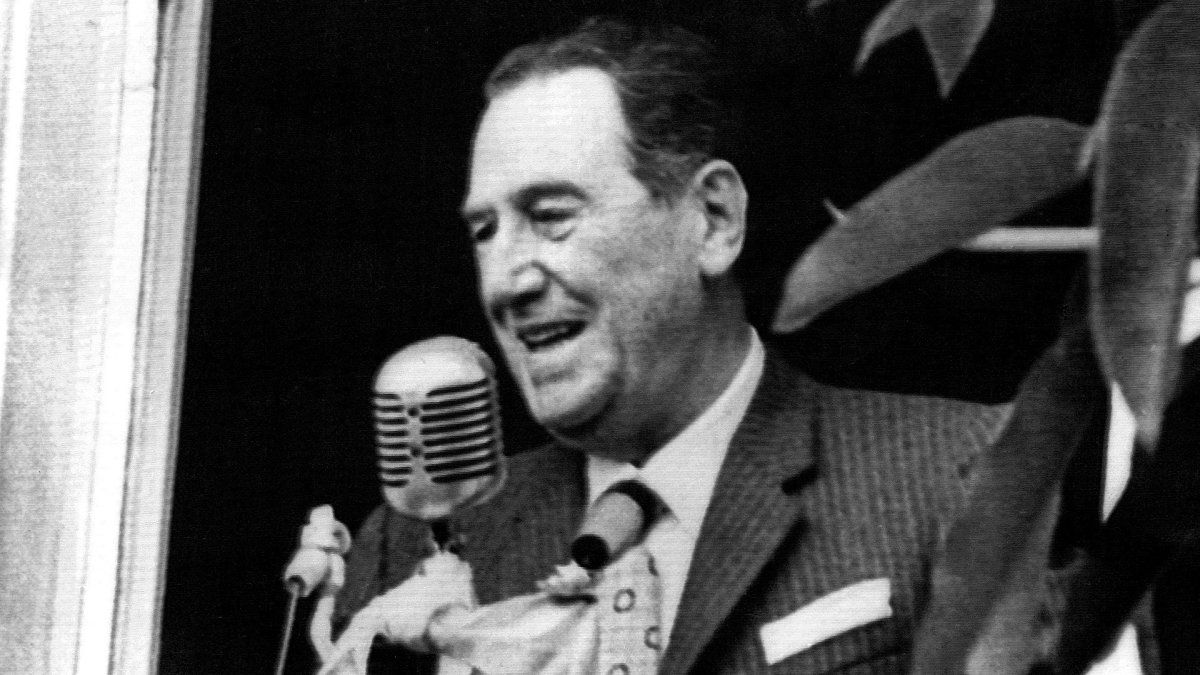There are five points, among several others, that explain such results:
- Unresolved economic problems The crisis of Peronism is also the crisis of other political parties, such as the UCR and the PRO, a decline that is of the political system in general due to the juxtaposition of a crisis that in Argentina began in its last phase in 2018 with the financial crisis, after the heavy indebtedness from 2016 to 2019, the return of the IMF, the reintroduction of the stocks in September 2019, the fiscal needs generated by the pandemic and the spiraling inflation from 2022 onwards. The previous Government could not reverse the 2018 crisis or have an anti-inflationary strategy as citizens demanded.
- Leadership problems An issue that determined the management problems of the previous Government is the dysfunctionality for Peronism of the fact that the Executive Branch is in charge of a formal leader who comes into conflict with the real leader. It happened between 2019 and 2023 and prevented a clear direction. It was neither an AF nor a CFK government. In 1973 this dysfunctionality for Peronism ended with the resignation of Cámpora. Before and after Perón, Menem, Néstor Kirchner and Cristina Kirchner were undisputed leaders and exercised management with a defined direction. They were strong governments more towards the “left” or “right” without governance crises or questions of effectiveness. The previous government could not be effective.
- Changes in values, forms of production and impact on the social subject An important issue has to do with representativeness. Technological and societal change determines other aspirations and values. The world of work has changed significantly with strong growth in independent jobs, often precarious where union representation loses strength. The weight of the industrial sector, the strength of Peronism, gives way to the growth of services. In the last election it was marked that Peronism lost for the first time resoundingly the representation of humble sectors, especially young people, who, as we said, have historical memory of Argentina’s stagnation from 2011 to date with private employment that has not grown since 2012.
- The discomfort of globalization Of course, this crisis is also part of a crisis of globalization that affected social democracies and the left and that generates a growing more radical thought on the right, including the extreme right. In Argentina, humble sectors that were closer to Peronist positions channeled the desire for a better life that was the historical heritage of Peronism as an engine of social change by voting for Milei.
- Impact of the pandemic. Beyond the factors previously mentioned, the economic crises and the strong impact of the pandemic, with a significant economic and individual impact due to isolation measures, swept away the official parties that lost all over the world except France and Mexico.
All of these factors reflect a deep social disenchantment with politics and with Peronism that must be reversed with determination, pragmatism, unity and renewal according to the needs of the hour. An hour where there are silences that stun and hurt.
Self-criticism must involve taking responsibility and acting firmly in cases of corruption or breaches of decorum, beyond the double standards of certain media outlets.
As Pepe Mujica pointed out, progressivism and the popular movement must be exemplary. I will not dwell on the role of the media or the powers that be in the defeat, because with the same media and the same economic groups, Peronism won in 1987 and 1989. Also in 2003, 2005, 2007 and 2011.
By the way, a favorable external cycle helped between 2003 and 2011 that boosted growth beyond successes in its administration. But the expansion of consumption and rights did not go hand in hand with cultural change or a change in the productive matrix, which avoids external restriction, nor did it manage to pierce structural poverty. Nor could the deterioration of the State and infrastructure that began in the 70s be reversed.
Perón, and later Peronism, were always pragmatic and had a strong connection to the reality of their time, and this fueled various tactical changes and even reinventions adapted to the times, such as in 1989 and 2003. Leaving aside the period of proscription, Peronism had two major crises that led to the defeat of 1983 and 2015.
The first led after two years to a renewal embodied by Cafiero and Menem that allowed a recovery with victories in 1987 and 1989. The second seemed to end with unity in the Frente de Todos including CFK and the majority Kirchnerism, with sectors that split after 2013 including Massa and Alberto Fernández himself, but this “renewal” unlike that of 1985 is still pending.
What does a renewal imply to be an alternative?
New Driving The elections in November this year are an opportunity for members and eventually independents to determine a new leadership. CFK herself pointed out that other leaders should take up the marshal’s baton.
Need for self-criticism A leadership of the whole must include self-criticism for the mistakes made that led to Milei’s victory. This, with different degrees of responsibility, commits the whole. It must be deep and fast to advance a strategy to be an effective opposition, with proposals for the midterm elections of 2025 and a government program for 2027. Explain to society why inflation was not lowered or equity improved, why the middle-high sectors continued to be subsidized, why the “clamp” could not be broken after 4 years of government. Why the currency or mortgage credit was not recovered. What was done wrong, what was done right, what should be done differently.
Strategy as effective opposition Peronism must articulate a strategy that allows it to maintain unity and exercise a clear and responsible opposition.
Proposals for 2025 and a Government Program for 2027 The leadership must articulate instances of debate and participation of technical and citizen cadres to establish a program that is a faithful reflection of the historical banners of Peronism, instrumentally adapted to the new times. A program that will once again win over society.
A critical issue is how to reconcile unity in diversity. It is essential to accept that Peronism is a multi-class and diverse movement that always had more conservative and more progressive expressions. As Mao said, you should walk with both legs.
I understand that such a characteristic of strength and unity must be maintained to win as in 2019, but it must be an effective unit to govern. With adequate leadership, the return of those who left the PJ or distanced themselves should include clear support for a program of social justice, economic independence and political sovereignty beyond respectable nuances in its implementation.
A clear leadership that expresses the whole should articulate all the Governors and parliamentary blocs to avoid leaks, dispersion and episodes of “borocotization”.
For Peronism to be a force for the future, it must empathize with society, which is very different from industrial society, with formal employment and dependency. A society that has mutated in terms of aspirations, less tied to more rigid and stable cultural and social patterns as it was in the 20th century.
This implies recognizing the diversity of the social subject “people”, of the category “worker” and recognizing a (temporary) relative cultural defeat that in Latin America, as García Linera himself has pointed out, causes even the beneficiaries of public and social policies to vote for sectors that denigrate equity and social justice.
As we have pointed out in previous columns, this requires rethinking the role of the State and social policies in the new context and fighting for a truly present and efficient State with labor rights. Present state and labor rights that did not reach the indigent and informal workers.
It is therefore a question of Peronism embodying its values in times of greater individualism, with a great connection to technology and social disconnection, a time marked by the emerging artificial intelligence that will radically change work, times of social networks with a bonfire of individual vanities and times of hatred. A time of crisis of the traditional concept of family, education, career. Times with fewer mandates, a crisis of identity and a search for meaning.
A time when Peronism and the popular movement must hold on to their flags, but wave them with conviction, with new actors and new forms. A Peronism that has a security policy in the face of an insecurity that punishes the poor, that includes prevention and effective punishment of crime, but also social inclusion and work, that keeps people away from drug trafficking.
The answer lies in rethinking the 3 flags.
Political sovereignty is essential in this world of bloc war. A period where the United States, China and Europe reinforce their States to dispute hegemony. An economic independence that is nourished by the new protectionism that the world is experiencing in the last decade and the return of industrial policies with national value chains that promote work, production and therefore development, this is equitable and sustainable growth.
In both cases, Argentina is weakened as a nation in a unilateral opening that, unlike in the 1990s, is going against the grain of the world. An Argentina that must return to multipolarity and regional integration as a strategy of political sovereignty given the aforementioned global context.
Social justice is a value to be recovered and that people are going to demand by living harshly in these months, the destruction of the State (again, which was and is necessary to reform and make efficient and truly present). A paradise for the exalted private monopolies that are the old-new predatory caste.
These are dark times of every man for himself within the framework of a law of the jungle where the wolves are devouring the lambs and where the people at the limit will resort to recovering the value of solidarity, which underlies, despite everything, the spirit of the Nation.
A Peronism that must be a promoter of production and work, beyond temporarily contemplating a social containment scheme organized by the State without outsourcing, but articulating decent work with popular economy sectors.
A movement that promotes free citizenship. Society seeks freedom, but freedom is only possible with consciousness that is nourished by education, health and work and social ties.
Free citizenship that can only be exercised within the framework of a Republic and a true democracy. An organized community that reconciles personal development with that of society. Let this be a contribution to a necessary collective construction headed by the only heir: the People. A revolution is needed in Peronism, so that society gives it its vote of confidence again, because as Eva Perón said, it will be revolutionary or it will be nothing.
Source: Ambito
David William is a talented author who has made a name for himself in the world of writing. He is a professional author who writes on a wide range of topics, from general interest to opinion news. David is currently working as a writer at 24 hours worlds where he brings his unique perspective and in-depth research to his articles, making them both informative and engaging.




